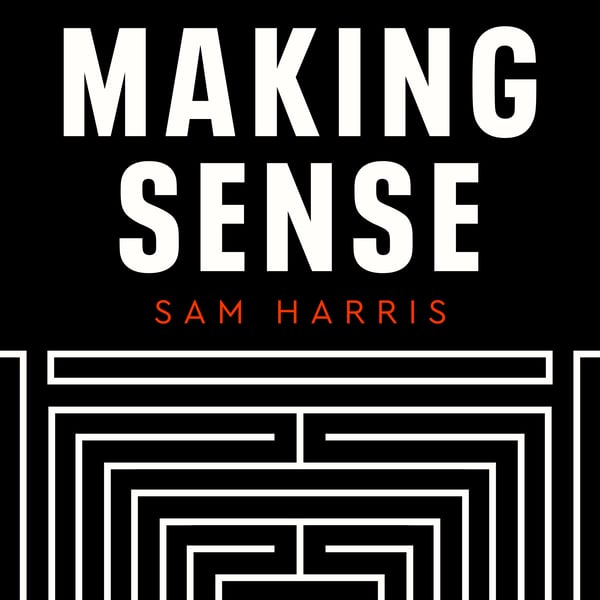#364 — Facts & Values
Making Sense with Sam Harris
Waking Up with Sam Harris
4.6 • 29.1K Ratings
🗓️ 23 April 2024
⏱️ 28 minutes
🧾️ Download transcript
Summary
Sam Harris revisits the central argument he made in his book, The Moral Landscape, about the reality of moral truth. He discusses the way concepts like “good” and “evil” can be thought about objectively, the primacy of our intuitions of truth and falsity, and the unity of knowledge.
If the Making Sense podcast logo in your player is BLACK, you can SUBSCRIBE to gain access to all full-length episodes at samharris.org/subscribe.
Learning how to train your mind is the single greatest investment you can make in life. That’s why Sam Harris created the Waking Up app. From rational mindfulness practice to lessons on some of life’s most important topics, join Sam as he demystifies the practice of meditation and explores the theory behind it.
Transcript
Click on a timestamp to play from that location
| 0:00.0 | Welcome to the Making Sense Podcast, this is Sam Harris. Just a note to say that if you're hearing this you're not currently on our subscriber feed and will only be hearing the first part of this conversation. In order to access full episodes of the Making Sense Podcast, you'll need to subscribe at Sam Harris.org. There you'll also find our |
| 0:24.9 | scholarship program where we offer free accounts to anyone who can't afford one. We |
| 0:29.0 | don't run ads on the podcast and therefore it's made possible entirely through the support of our subscribers. |
| 0:34.0 | So if you enjoy what we're doing here, please consider becoming one. In 2011 I published my third book, The Moral Landscape, which was an edited version of my doctoral dissertation, |
| 0:54.0 | in which I argued that there are right and wrong answers to questions of human values |
| 0:58.0 | and that much of importance depends upon our admitting this |
| 1:01.0 | and trying to work out how we can all make moral progress together. |
| 1:05.3 | The book was widely criticized, both for things I said in it and for things I hadn't said. |
| 1:10.5 | I did say a few things which needlessly provoked academic philosophers and graduate students. |
| 1:15.0 | I wrote at one point by way of explaining why I was dispensing with some of the terminology one might expect to encounter in any discussion of moral truth, that every mention of terms like meta ethics, |
| 1:26.0 | deontology, non-cognitivism, anti-realism, and the like directly increases the amount of boredom |
| 1:32.3 | in the universe. |
| 1:33.0 | That's still true, of course, but it pissed off a lot of academics. |
| 1:37.0 | Worse, many people couldn't get past the book's subtitle, |
| 1:41.0 | how science can determine human values, because they have a far narrower |
| 1:45.8 | conception of science than I do. |
| 1:48.7 | Many people, including many scientists, seem pretty confused about the boundaries between science and other modes of thought, as I'll discuss here. |
| 1:57.0 | Consider the concept of objectivity, which most people assume is central to science. |
| 2:02.0 | It is central to science. |
| 2:02.8 | It is central, but only in one sense of the term. |
| 2:06.8 | As the philosopher John Searle once pointed out, |
| 2:09.4 | we should distinguish between epistemological and ontological senses of objectivity. |
... |
Transcript will be available on the free plan in -337 days. Upgrade to see the full transcript now.
Disclaimer: The podcast and artwork embedded on this page are from Waking Up with Sam Harris, and are the property of its owner and not affiliated with or endorsed by Tapesearch.
Generated transcripts are the property of Waking Up with Sam Harris and are distributed freely under the Fair Use doctrine. Transcripts generated by Tapesearch are not guaranteed to be accurate.
Copyright © Tapesearch 2025.

